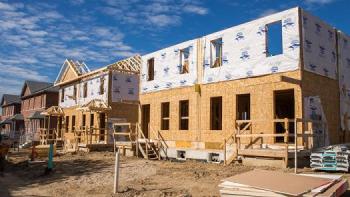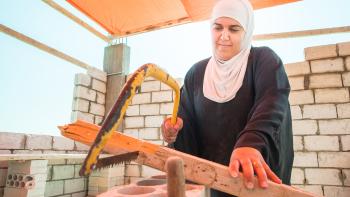
Studying by candlelight
Interview of ManPro Systems founder & CEO Linus Wahome
In episode 5, we focus on young people and the struggles they face in their everyday lives. This time, our guest is Linus Wahome, CEO of ManPro Systems, a Kenyan tech company. We will take a walk through his life, to better understand the challenges he – as many others – faced as a kid and the path that led him to become an entrepreneur at a young age.
When Linus was a child, getting a formal education was very challenging. Most families struggled to afford it despite its relatively low costs. It was common that half the class could not regularly attend school, as the parents did not always have enough to pay the school fees.
Too dark and too noisy to study
Housing conditions also created an obstacle to education: at home, for example, they did not have electricity, which made it impossible to do homework in the evening. Linus remembers trying to finish work before dark, as the only lamp in the house was shared by the whole family.
He was amongst the lucky ones, though: most of his school friends lived in overcrowded houses, where constant noise was added to the list of hurdles to concentration.
All of that reflected on the quality of life those kids now have as adults: due to poor and discontinuous education, many of Linus’s schoolmates could not take advantage of formal job opportunities and ended up struggling through life.
Pushing to send more into higher education in Kenya
Luckily, nowadays the situation is definitely improving: thanks to the government, primary education is not only compulsory but also accessible to everybody. However, the quality of education is often compromised as, to keep the costs down, a single class might have from 50 up to 100 children with only one teacher.
Since free primary education has been introduced, the government has also been pushing on a 100% transition from primary to high school, which is also partly free. Parents still must cover some fees and uniforms, but books are provided. Thanks to this, the transition level is very high.
When it comes to transition from high school to university, however, situation gets harder. Once again, the challenge is affordability, as not everybody has the money to attend it.
Getting the entrepreneurial bug
What gave Linus the motivation to start his own business were exactly the struggles his family faced when he was young: their economic situation was not easy, and while his father was working in IT, his mother was an entrepreneur, engaging in all sorts of businesses to make sure they would always have food on the table.
She sold clothes, she got into a construction business, supplying materials,, and that example planted a seed in young Linus: it made him admire the hard work and ingenuity of the people who started their own business.
When in high school, he followed the same example and, in order to have pocket money without having to ask his parents, he spent his holidays either selling charcoal to the local hotels and restaurants, or jewellery to his classmates.
That is when he started noticing opportunities everywhere. That is how ManPro was born to find a tech solution to construction issues.
Home is the cornerstone of children’s development
Home was the key to Linus’s success, and still today it has a special place in his heart. To him, when you are a kid, home is where you get ideas about how life is going to be in the future; it is supposed to be a place where you find peace, in contrast with all the conflicts that are outside – which unfortunately is not the case for many Kenyan families.
It should be a place of happiness, joy, and laughter, where you can always be yourself, without the need to prove anything to anybody. The simple things of life should be enjoyed within the context of home since that enables you to be more productive in the outer world.
The COVID pandemic has made people appreciate home more. Being forced to stay in our homes, people had to face and solve whatever challenges were there.
As a successful entrepreneur – or, as he says, an entrepreneur on the path to success – Linus thinks we should all put more effort in our homes, , because at the end of the day that is what matters and those are the people we come back to.
Home Sapiens podcast was produced as a part of the Build Solid Ground Project, founded by the European Union, Habitat for Humanity. Its content is the sole responsibility of Habitat for Humanity and does not necessarily reflect the views of the European Union
Listen now:
Apple Podcasts
Spotify
Google Podcasts
<Go back> <First episode>




